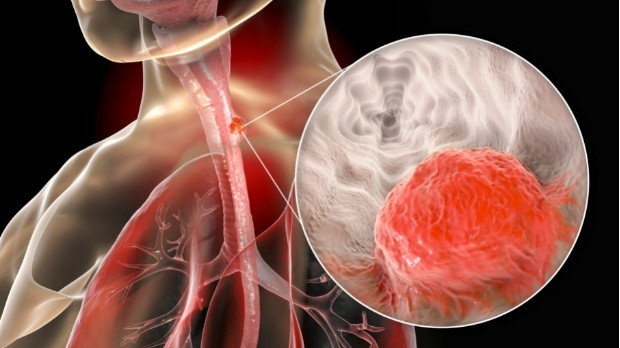Trouble swallowing, persistent indigestion or heartburn, unintentional weight loss? These are all symptoms that could indicate oesophageal cancer. Oesophageal cancer is aggressive, and outcomes can be improved if caught early.
Oesophageal cancer is found in the oesophagus, sometimes called the gullet or food pipe. The wall of the oesophagus is made of several layers of tissue. These include the inner layer (mucosa), muscle, and connective tissue. Oesophageal cancer starts in the inner lining of the oesophagus and spreads outward through the other layers.
Knowing which symptoms to look out for means that the cancer can be caught and treated as quickly and effectively as possible. The most common symptom is weight loss and is often coupled with any of the following:
- having problems swallowing (dysphagia)
- feeling or being sick
- persistent heartburn or acid reflux
- symptoms of indigestion
- loss of appetite.
If you have another condition, such as gastro-oesophageal reflux disease, you may get symptoms like these regularly, but you should contact your GP surgery if these symptoms change or get worse.
Around 9,300 people are diagnosed with oesophageal cancer in the UK each year. It is more common in men than women and the chances of developing the cancer increase with age.
Oesophageal cancer can affect anyone, but you are more at risk if you are:
- Aged 55+
- Drink alcohol or smoke heavily
- Are very overweight
- Have a medical condition that affects your oesophagus
If you are experiencing the symptoms listed above, you should contact your GP practice. They can assess you and arrange additional tests or a referral if needed. Having these symptoms does not mean you have cancer, but it is advisable to get them checked.
